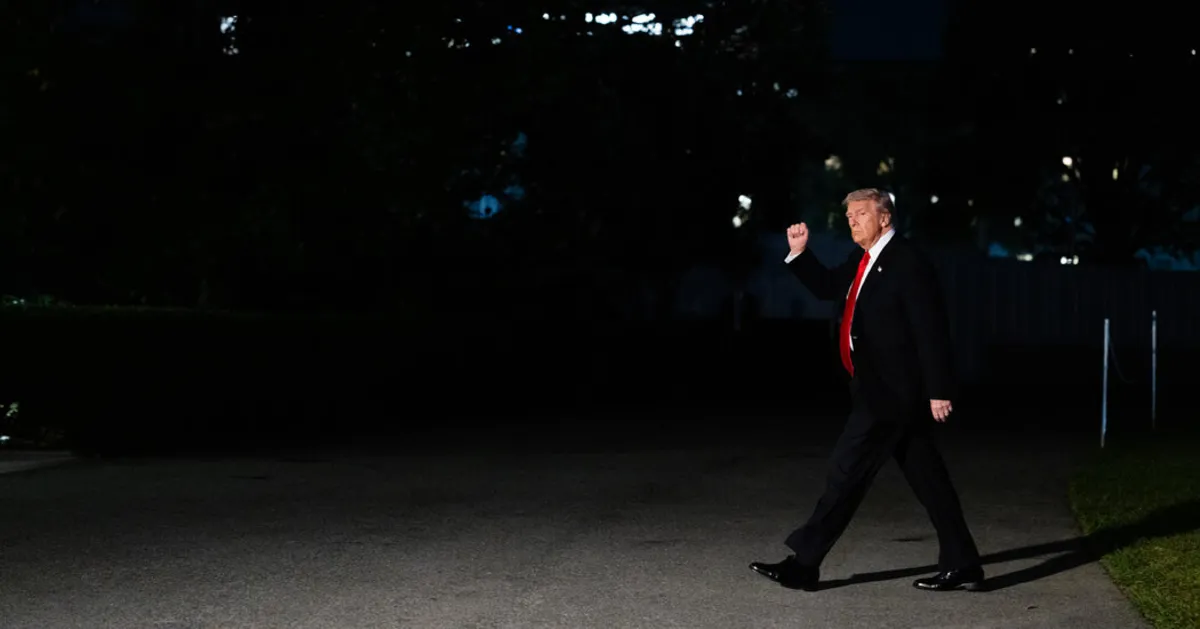
In a pivotal week for President Trump, the nation is witnessing a series of events that will challenge his political power and influence. This week includes key elections that will reflect voter sentiments, a critical Supreme Court battle regarding his tariffs, and an ongoing government shutdown that continues to affect many Americans. Fresh from a diplomatic trip to Asia and a weekend in Florida, President Trump took to social media to express his discontent with Zohran Mamdani, the Democratic nominee for mayor of New York City. He threatened to withhold federal funds from the city if Mamdani wins in the upcoming election.
While Trump prepares for virtual rallies for Republican candidates in New Jersey and Virginia, he has emphasized the significance of the Supreme Court's upcoming decision on his tariffs. He has proclaimed that the court will be making “one of the most important and consequential decisions ever made” regarding the legality of his tariffs, which are scheduled for consideration on Wednesday. This week is not only essential for Trump’s administration but also poses serious questions about his governance style, particularly his approach to unilateral decision-making.
If Trump continues to engage in a standoff with congressional Democrats, he risks presiding over the longest government shutdown in U.S. history. Recent polling indicates that more Americans are increasingly blaming him for the shutdown. According to presidential historian Tevi Troy, the confluence of these events—electoral, legislative, and judicial challenges—represents a significant test for Trump's unilateral power. “You can do a lot of things with just the majority in Congress, but keeping the government open is one of them,” Troy noted.
In response to the mounting pressures, the White House has attempted to downplay the stakes of the week ahead. White House spokesman Kush Desai stated, “Every week is pivotal when Americans have a president who is all gas, no brakes on his push to Make America Great Again.” However, Trump appears to recognize the gravity of the situation, particularly with Wednesday’s Supreme Court hearing poised to address whether his use of the International Emergency Economic Powers Act to impose tariffs is lawful. Trump has consistently argued that these tariffs are crucial for strengthening the U.S. economy and enhancing the country's global standing.
Despite Trump’s assertions of economic benefits, some economists warn that the tariffs have led to price increases for American consumers. On social media, Trump stated, “If we win, we will be the Richest, Most Secure Country anywhere in the World, BY FAR. If we lose, our Country could be reduced to almost Third World status — Pray to God that that doesn’t happen!” Although he initially planned to attend the Supreme Court arguments, Trump later announced he would not attend, stating, “I do not want to distract from the importance of this Decision.”
As the elections draw closer, Trump has actively endorsed Republican candidates via social media, particularly in New Jersey and Virginia, which are considered indicators of potential outcomes for the 2026 midterm elections. He has not campaigned in person in these states but has utilized his platform, Truth Social, to rally voters. “Virginia and New Jersey, VOTE REPUBLICAN IF YOU WANT MASSIVE ENERGY COST AND CRIME REDUCTIONS,” he urged in a recent post.
In his efforts to influence the New York City mayoral race, Trump has resorted to threats against the city should Mamdani secure victory. In a recent interview, he expressed skepticism about providing funds to New York under a “communist” leadership, although Mamdani identifies as a democratic socialist. When asked about comparisons made between him and Mamdani, Trump quipped, “Well, I think I’m a much better-looking person than him, right?”
As this week unfolds, all eyes will be on President Trump as he navigates these significant challenges that could redefine his administration's trajectory and impact the political landscape moving forward.